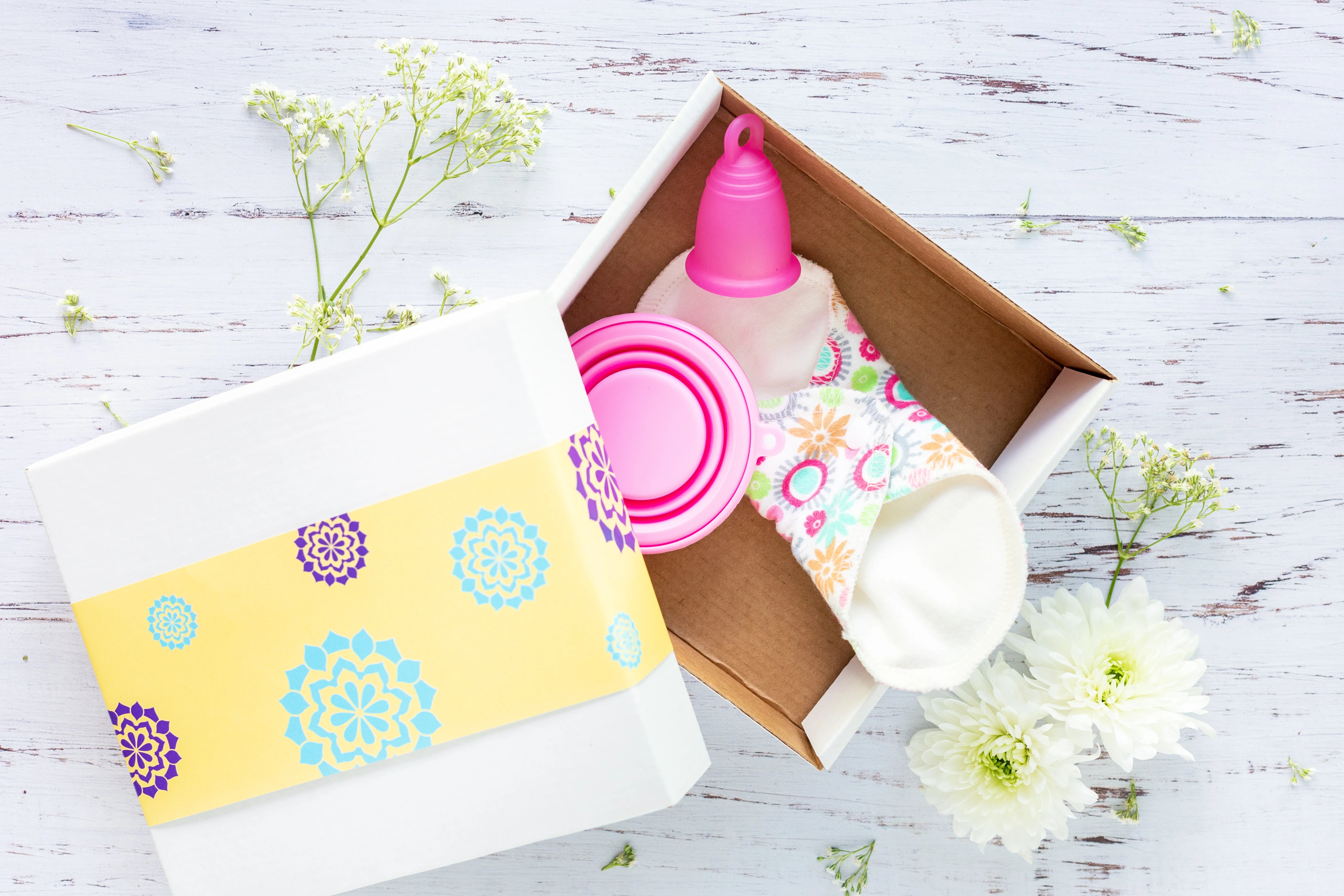Menstrual Hygiene: How to Stay Healthy
Menstruation is a biological process that a female experiences every month. It requires utmost care and hygiene. Menstrual hygiene management is an important aspect in the life of females between menarche (the time at which a girl starts menstruating) and menopause (period when a woman stops menstruating). In some cultures, menstruation is seen as a transitional stage of a girl to womanhood and therefore celebrated with a lavish ceremony.
What are the menstrual hygiene materials you can use?
There are several menstrual hygiene materials that can be used. The use of these materials varies from one person to another as individuals go for that which they feel comfortable and easy to use. During your period you need to use materials that will help absorb your menstrual blood and also make you feel comfortable. Some of these materials are:

Sanitary pads
Pads are absorbent materials which are usually rectangle in shape with or without wings. They are usually attached to the girl’s pants. The wings are folded over the edges of the underwear to prevent leakage and displacement. There are different types of pads for either a normal flow or heavy flow and the good part is that there are pads that suit various needs. There are different types of sanitary pads available in Nigeria which are affordable so there is no need to worry about getting yours. It is also important not to forget to properly discard used sanitary pads.
Reusable pads or clothes
Reusable pads are pads that can be washed after each use with detergent and clean water. This type of pad is affordable and saves money as it can be used over time. Some women also cut clothes to mimic the pad which also helps in absorbing menstrual blood. After the use of these materials, it is important that they are washed, sun-dried and ironed. The process of sun drying and ironing is necessary as it helps to kill microbes with the use of heat. Irrespective of the material, it is hygienically important that they are changed as frequently as possible within 4 to 6 hours.
Tampons
This is a hygiene material that absorbs menstrual blood by inserting it into the vagina during menstruation. When the tampon is inserted correctly, it is held in place by the vagina and expands as it soaks up menstrual blood. Tampons are usually compressed into tiny tubular shapes. Just like pads, tampons come in different sizes and absorbencies to suit people with different menstrual flow rate. A tampon usually comes with strings which stay outside the girl’s body to aid easy removal of tampons. When applying a tampon, wash your hands, relax and then gently insert the tampon into your vagina. Tampons can be changed within 8hours of use. Some people believe that tampons do get lost in the body but this belief is wrong. In situations where the strings are missing, gently insert 2 fingers to find the string. This might take about one minute to find and gently pull out the tampon. If the tampon is left for too long in the body, there might be an infection. Not so many girls in Nigeria use tampons.
Menstrual cups
This is a type of reusable small, funnel-shaped cup that is made up of rubber and silicone. The cup helps to catch blood before it flows out of the body. It is usually inserted into the vagina and has the ability to hold more blood than other methods. A cup can be worn for up to 12hours. In order to use this method, the individual’s cup size must be known. Ensure that before cups are reused, they are washed and sterilized.
Keeping yourself Clean and Healthy
Menstruation can be messy, stressful and difficult sometimes, due to the flow of blood out of the vagina. This experience can be stressful and dirty if hygiene is not put in place. Menstrual hygiene according to UNICEF is the process where ‘women and adolescent girls use a clean menstrual hygiene management (MHM) material to absorb or collect blood that can be changed in privacy as often as necessary for the duration of the menstruation period, using soap and water for washing their bodies as required and having access to facilities to dispose of used menstrual management material.’ Here are some tips on how to stay hygienic and stress-free during your period.
Frequent changing of menstrual hygiene materials within 4 to 6 hours
Individual preference on menstrual materials varies and girls have different ways they maintain hygiene during this period. It is important that sanitary pads and tampons of high absorbency rate should be used depending on the menstrual flow of the individual. The pads, cups and tampons should be placed appropriately and changed within 4 to 6 hours depending on how heavy the flow of the individual is and to prevent irritations. Due to blood flow, several microorganisms are attracted which could cause irritations, rashes or infection if hygiene is not maintained.
Wash regularly
The best practice in maintaining menstrual hygiene is to have your bath anytime you want to change to a new sanitary pad or material but if you are in a public place or in school, it is advisable to wash your hands first before you wash your vagina. Wash your vagina with plain lukewarm water before you change into a new pad. When washing the vagina it is necessary that it is done in the right way to prevent infecting oneself. Most girls do wash their vaginas in the wrong way. The right way is to use your hands to wash from the vagina to the anus and not the other way. Washing from the anus to the vagina will only lead to the transmission of bacteria from the anus to the vagina or urethra thereby causing infections. Do not use soaps or vagina hygiene products as they kill the normal flora of the body thereby leading to infections and the growth of organisms causing infections.
Discard used sanitary materials properly
Sanitary materials should be wrapped and properly discarded to prevent the spread of causative organisms that leads to infection. Hands must be properly washed with soap after discarding the material to prevent infecting one’s self and others. Make sure that sanitary pads and tampons are not flushed because they block the toilet in the long run. Also remember to ensure that clothes, towels and underwear are changed and washed daily.
Importance of menstrual hygiene
- To help girls and women manage their periods in a healthy way and ensure their normal participation in their day to day activities e.g. schools, workplaces and other public spaces.
- To prevent infection and irritation caused by lack of hygiene during periods.
- To build the self-esteem of girls during their periods.



